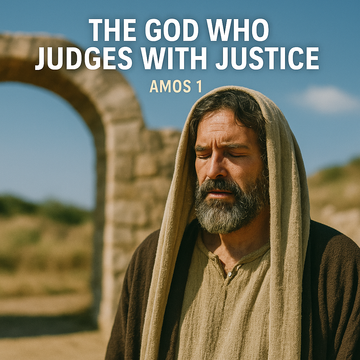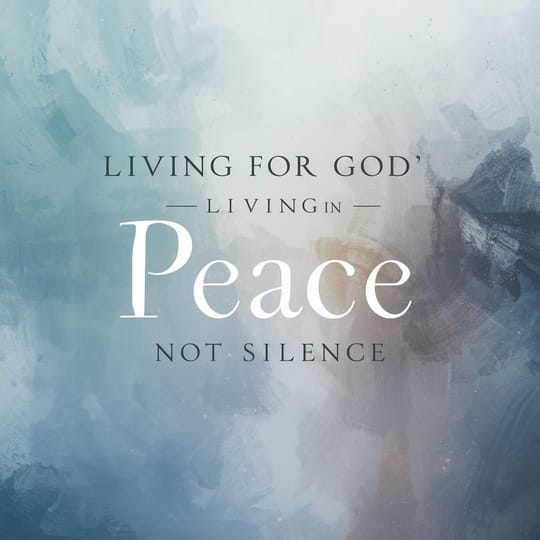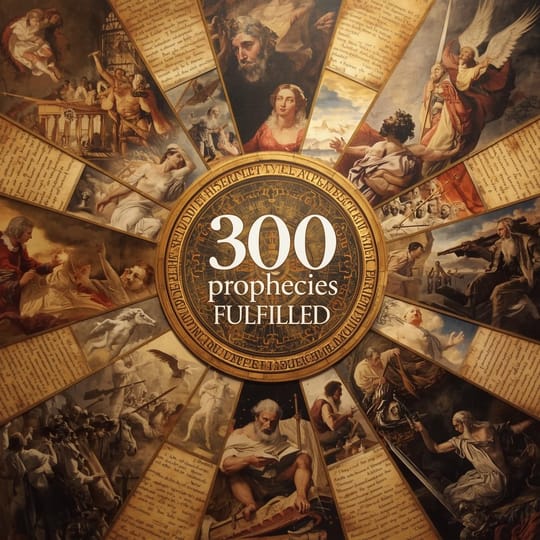Question: What is a proper worldview for a Christian to have concerning the LGBTQIA+ lifestyle?
Answer: Christians should live and promote healthy holy sexuality. This is defined by God throughout all of God's Word as the heterosexual union of a man and wife in the context of a committed marriage relationship. Any sexual activity outside of this is concerned sin and is to be prohibited for sake of righteousness and human flourishing.
Let's talk about it.
Here is how we will divide this up:
Section One: Why is This Subject Important?
Section Two: What is a Biblical View of Sexuality?
Section Three: How Do I Process Difficult Topics?
Section Four: Push Today’s Topic Through the Filter
Section Five: Q&A
Section Six: Recommended Resources
Section One: Why is This Subject Important?
Importance of a Biblical Worldview
- Only 4% of Americans have a Biblical worldview, according to Barna’s 2023 research.
- Among Millennials (ages 27–42), only 2% possess a Biblical worldview.
- Even among born-again Christians, only 19% hold a Biblical worldview when it comes to topics like sexuality, marriage, and morality.
Confusion on LGBTQ+ Ethics
- 51% of self-identified Christians say “gender identity is a matter of choice.”
- 40% of evangelicals under 30 believe “the Bible’s teachings on sexuality are outdated.”
- 30% of church-going Gen Z Christians support same-sex marriage as morally acceptable.
Cultural Pressures on Young People
- Nearly one in five Gen Z adults (ages 18–25) now identify as LGBTQ+.
- Among teens, 26% of girls and 15% of boys now identify as something other than heterosexual.
- 59% of Gen Z believe that “sex is not limited to male and female.”
Shifting Opinion on Sexual Ethics
- In 2004, only 31% of Americans supported same-sex marriage. By 2023, that number grew to 71%.
- Among weekly church attenders, support for same-sex marriage rose from 20% in 2004 to 45% in 2023.
Lack of Biblical Teaching on Sexual Ethics
- Only 24% of church leaders say they’ve preached on LGBTQ+ topics in the past year.
- 44% of Christian parents say they don’t feel equipped to talk to their children about gender or sexuality from a Biblical standpoint.
The Mental Health Crisis Linked to Sexual Identity
- LGBTQ+ youth are 4x more likely to experience depression, anxiety, and suicidal ideation.
- 41% of non-heterosexual teens report seriously considering suicide in the last year.
- Transgender-identifying youth are 5.5x more likely to attempt suicide.
Bottom Line:
- Moral confusion is rampant—even in the Church.
- Secular ideologies heavily influence the younger generations.
- There is a discipleship gap when it comes to addressing sexual ethics.
- Without a clear, compassionate, and consistent Biblical voice, the Church risks losing the next generation to cultural conformity.
Section Two: What is a Biblical View of Sexuality?
The Biblical view of sexuality is to be holy in our sexuality. This means we conform to the way God has ordained sexuality according to His Word. According to His Word, He ordained proper sexuality to be the heterosexual union of one man and one woman for life.
This means ALL sexual relations outside of the heterosexual union of a husband and wife are sin. The reason this is a problem has little to do with the Bible and has to do with two things:
- Culture- We have no problem saying adultery is a sin. No one stands up in protest. However, we protest the LGBTQIA lifestyle because culture pushes it. Imagine I stood up at church and said, "Adultery is wrong. If you are struggling to be committed to your spouse, you need to seek help." Most people would give a loud amen, and we would move on. Now, imagine I said the same thing, but substituted adultery for homosexuality. Would anyone say amen? Both are a sexual brokenness according to the Bible.
- Personal- We struggle with this because the issue is rarely personal. We know someone who is in this lifestyle, and we want to help them find peace with their desires.
Section Three: How Do I Process Difficult Topics?
There will always be complex topics that each generation has to grapple with in the context of pushing back against social pressure. Therefore, we must come up with a filter to move issues through so we can equally apply the proper criteria and come out with logical conclusions.
Step 1. Understanding First Principles of Philosophy (Thinking Clearly)
- We must apply basic critical thinking to our process to ensure a consistent starting point.
- The “first principles of logic” are:
- 1- The law of non-contradiction- A thing cannot both be and not be at the same time and in the same respect. (A does not equal B)
- 2- The law of excluded middle- A statement is either true or false, there is no middle option. (A is either a or B. Not A/B.)
- 3- The law of identity- Something is what it is. (A = A)
- Blog entry on this: https://www.brandoncannon.com/how-to-develop-common-sense-thomas-aquinas/
Step 2. Establish the Authority of God's Word in the Life of a Christian
- Many Scriptures point to the authority of God’s Entrant Word in the life of the Christian:
- 2 Timothy 3:16-17
- 2 Peter 1:20-21
- Psalm 19-7-9
- Psalm 119:89
- John 17:17
- Matthew 5:18
- Hebrews 4:12
- Isaiah 40:8
Step 3. Study and Discover the Biblical Position
- Since God’s Word is the Source of knowing God and His revealed Will, this step is where we go to God’s Word to find out what God’s Word says about the topic.
- Interpret Scripture through the Grammatical-Historical Method.
- We interpret the Bible according to the literary and historical context to understand the original author's meaning.
- Understand the Author’s Intent
- Ask, “What did this mean to the original audience?”
- Understand the Author’s Intent
- We interpret the Bible according to the literary and historical context to understand the original author's meaning.
- Take the Plain Meaning First
- Interpret the passage naturally unless the text clearly uses symbolism or poetry.
- Study the Context
- Look at the surrounding verses, the book as a whole, and the historical-cultural background.
- Use Scripture to Explain Scripture
- Compare passages to see how the Bible explains itself.
Step 4. Carefully Consider Opposing Positions
- It is essential to state the objections clearly so you know what is being criticized. Analyze the criticism according to its validity to God’s Word, not what we desire the truth to be.
Step 5. Identify Personal Bias
- Do you have a personal bias that would cause you to struggle with this topic? How can you use it to help others?
Step 6. What Hill Does This Live On? (Die For/Debate/Don't Care)
- Hill One- This is non-negotiable
- Hill Two- This is debatable
- Hill Three- This does not matter
Step 7. Consider the Context Your View Will Be Applied to and a Strategy for Moving Forward
- How can you combine this truth with love to help those in your world?
Section Four: Push Today’s Topic Through the Filter
Step 1. Understanding First Principles of Philosophy (Thinking Clearly)
- We must apply basic critical thinking to our process to ensure a consistent starting point.
- The “first principles of logic” are essential to understanding truth in a culture of relativity.
Step 2. Establish the Authority of God's Word in the Life of a Christian
- Many Scriptures point to the authority of God’s Entrant Word in the life of the Christian. Ex: 2 Timothy 3:16-17, 2 Peter 1:20-21, Psalm 19-7-9, Psalm 119:89, John 17:17, Matthew 5:18, Hebrews 4:12, Isaiah 40:8
Step 3. Study and Discover the Biblical Position
- Define Holy Sexuality- (Genesis) Anything outside the heterosexual union of marriage is considered a sin and outside of God's Divine will.
- Supporting Scripture that God’s Word condemns any sexual union outside of heterosexual union: Genesis 2:24, Leviticus 18:22, Leviticus 20:13, Matthew 19:4-6, Romans 1:26-27, 1 Corinthians 6:9-10, 1 Timothy 1:9-10
Step 4. Careful Consider Opposing Positions
- Four Primary Objections:
- 1- Misinterpretation of Scripture- Opposition says the references to homosexuality refer to a specific type of compelled sex.
- Rebuttal- It is mentioned in various places and leaves no doubt in Romans 1
- Blog article about the two main passages in question
- 2- The word “homosexual” was not invented in English until the 1800s; therefore, it can not refer to the homosexual lifestyle.
- Rebuttal- The original language was not English. The Greek culture had plenty of words for this.
- 3- Progressive Christianity- Says that God's Word must change with our times and culture.
- Rebuttal- Not true. There were unholy sexual acts accepted in culture during the time and were condemned by God’s Word.
- 4- Born This Way. How can someone help it if they were born that way?
- Rebuttal- This has produced no evidence in peer-reviewed studies. This is usually born out of personal experience, which is highly subjective. But we are ALL born with certain proclivities for sin. That is why Jesus says we must be born again.
- 5- How can love be wrong?
- Rebuttal- Love can be wrong. Loving someone who is not your spouse is wrong. Loving someone underage is wrong. Loving something more than God is evil. Love is a commitment, not an emotion.
- 1- Misinterpretation of Scripture- Opposition says the references to homosexuality refer to a specific type of compelled sex.
Step 5. Identify Personal Bias
The truth is, most people who have read the Bible know what it says about this topic. We struggle for the following reasons:
- This is not a thought experience. It is usually about a person we love.
- We have these feelings and desperately want them to be validated.
- Culture pushes us.
- We don't want to be unloving. (Toxic empathy)
Step 6. What Hill Does This Live On? (Die For/Debate/Don't Care)
- God's Word says that all homosexuals will have their place in the Lake of Fire, so... Hill to die on. We are on a rescue mission to show truth with love.
Step 7. Consider the Context Your View Will Be Applied and a Strategy for Moving Forward
From Rosaira Butterfield’s book, “The Gospel Comes With A House Key”
- 1- Live out “radically ordinary hospitality.” (Be kind to all.)
- 2- Build long-term relationships, not debates (Love the people, hate the sin.)
- 3- Be bold with the Bible, but gentle in tone (The truth is a gift, wrap it well.)
- 4- Model repentance and honesty (All struggle with something.)
- 5- Let the Church be a family, not just a meeting. (Let strangers see the church being the church)
- 6- Be Prepared for a Long Journey (Take your time.)
Section Five: Q&A
Question: Is the modern Church misinterpreting the passages that condemn same-sex unions?
- There has been an effort over the past 30 years to act as though it is time to “update“ the Bible’s definitions. I recently created a blog post to clarify why these modern takes are incorrect. (Link to Article) Here some other things to consider.
- First- The ancient Roman culture supported or at least did not openly condemn same-sex unions. Therefore, to come against it was scandalous. Paul was not sneakily trying to find a way to excuse same-sex unions.
- Second- This ancient culture is static. It has not moved because it exists in the past. Therefore, we must always be skeptical of fresh takes on something goes completely against established scholarship that has endured for 2,000 years.
- Third- Even if someone debunks all the New Testament Scriptures, God’s Word addresses His intended design for sexuality in Genesis.
Question: What about the “gay gene?” I have heard we can be born this way.
- Answer: There is no evidence of a change to our genetics. Here are some articles to help discuss what they have found.
- Neuroendocrinal research (confirm):
- https://onlinelibrary.wiley.com/doi/10.1111/jne.12562
- More prenatal neurological study (actually a study of several studies): Brain Sex Differences Related to Gender Identity Development: Genes or Hormones? https://share.google/eOTUGwzy6vl67fWJI
- Present and Future of Human Sexuality: Impact of Faulty Perinatal Hormonal Imprinting | Sexual Medicine Reviews | Oxford Academic https://share.google/gHVci1AdAbPCd0Q4b
Question: Why does the Church pick on gay people?
- Answer: The Church focuses on this because culture focuses on this. Most people agree that adultery is wrong, so there is not as much need to discuss it. However, the Church should do better to spell out what Holy Sexuality IS and not just what it is NOT.
Question: How can loving someone be wrong?
- Answer: Ask someone who has ever had a stalker. Love is a commitment, not just an emotion. This is a play on toxic empathy.
Question: If I don’t let my child be who they are, they may kill themself. Shouldn’t I rather have a living Transgender child than a dead child?
- Answer: This is a devastating situation. Many parents are bullied into going against their conscience and God’s Word because of this scare tactic. This is manipulation. While you need to surround yourself with a community to walk with you, I would encourage you not to give in to manipulation. Instead, consider these options:
1- Remove your child from their toxic influences.
2- Hyperfocus on showering your child with love and truth.
3-For a season, radically change your lifestyle to become the primary influence on your child.
4- Dig into God’s Word together.
5- Process the pain and confusion together. But do not give in to terrifying manipulation.
Question: Why would God make me this way? All God created is perfect, so doesn’t that mean I am?
- Answer: Where does the Bible say that everyone born after the Fall is perfect? It does not say that. Children are born with issues because of the Fall.
Section Six: Recommended Resources
- Holy Sexuality (Christopher Yuan)
- The Gospel Comes with a Housekey (Rosaria Butterfield)
- Five Lies of our Anti-Christian Age (Rosaria Butterfield)
- A Change of Affection (Beckett Cook)
- Gay Girl, Good God (Jackie Hill Perry)
- The Rise and Triumph of the Modern Self: Cultural Amnesia, Expressive Individualism, and the Road to Sexual Revolution (Carl Trueman)









